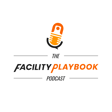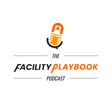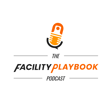
Creating a Company Culture That Empowers Employees
In a world where employee satisfaction and engagement play a pivotal role in the success of a company, the podcast episode we bring to you today is a gold mine. This discussion with the CEO of Pro Athlete, Andrew Dowis, reveals the secrets to creating a thriving company culture and offering unique employee benefits. Join us on this and learn about the power of flexibility and the significance of core values.
Learn More about Facility Ally:
https://facilityally.com/
Learn more about Pro Athlete:
https://www.proathleteinc.com/
Check out their online stores:
https://www.justbats.com/
https://www.justgloves.com/
https://www.justpaddles.com/
Be sure to subscribe here, and follow our social channels for more content
Instagram: https://www.instagram.com/yourfacilityally/
TikTok: https://www.tiktok.com/@facilityally
YouTube: https://www.youtube.com/@facilityally
Facebook: https://www.facebook.com/facilityally


